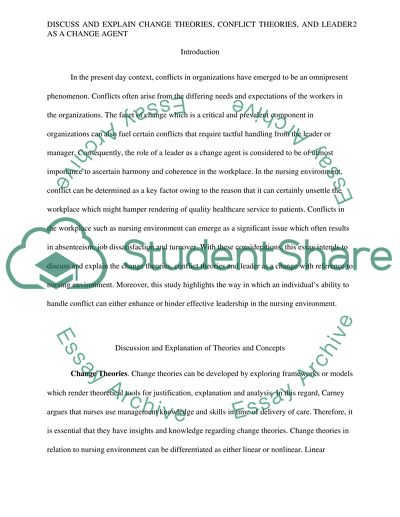Cite this document
(“Change theories, conflict theories, and leader as a change agent Essay”, n.d.)
Retrieved from https://studentshare.org/nursing/1488420-change-theories-conflict-theories-and-leader-as-a-change-agent
Retrieved from https://studentshare.org/nursing/1488420-change-theories-conflict-theories-and-leader-as-a-change-agent
(Change Theories, Conflict Theories, and Leader As a Change Agent Essay)
https://studentshare.org/nursing/1488420-change-theories-conflict-theories-and-leader-as-a-change-agent.
https://studentshare.org/nursing/1488420-change-theories-conflict-theories-and-leader-as-a-change-agent.
“Change Theories, Conflict Theories, and Leader As a Change Agent Essay”, n.d. https://studentshare.org/nursing/1488420-change-theories-conflict-theories-and-leader-as-a-change-agent.


